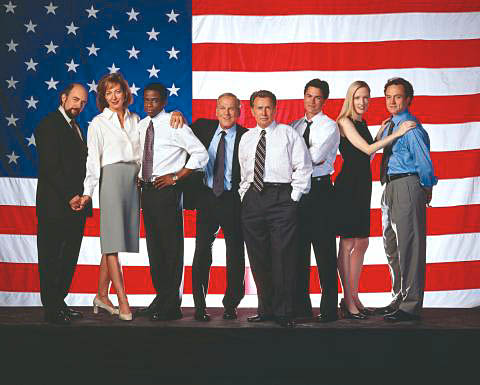
Inspired by a recent ABC Family showing of The Sandlot, I thought it would be fun to take a look at what became of the child actors that made up one of my favorite baseball movies growing up. And from what I saw of the airing, it's still a fun show. And it will be, for-
ev-er!
1.)
Scotty Smalls
The lead character who totally rocked a huge fishing hat, had zero baseball skills, and developed into the coolest kid in the neighborhood was played by
Tom Guiry.
Guiry continues acting having earned roles in The Black
Donnellys, Kings,
CSI Miami, and the vastly underrated U-571. I personally don't remember him in any of these. As such I remember him still as the little kid and have a hard time with the fact that he fathered a child at the age of eighteen.
2.) Benny "The Jet" Rodriguez
The skilled back
yarder was pretty much the equivalent of a lifetime AAA player who made one good play in one game. I mean who wouldn't order a steal of home with the game on the line? Nonetheless, the actor was
Mike Vitar who ceased acting four years after the Sandlot. He went on to appear in The Mighty Ducks 2 and 3 as well as a couple of cameos on
NYPD Blue and Chicago Hope. The older, grown up Benny Rodriguez was played by Mike
Vitar's older brother
Pablo P. Vitar who did this movie and literally nothing else before passing in 2008. At least he got to steal home!
3.) Hamilton "Ham" Porter
The slick hitting catcher catapulted his childhood fame into a list of impressive Hollywood
credentials.
Patrick Renna bounced around TV for awhile getting in an episode of Home Improvement, ER and one of my personal all time favorite series Boy Meets World. Other highlights include X-Files, National Lampoon Presents Dorm Daze, and Boston Legal.
4.) Michael "Squints"
PalledorousChauncey Leopardi was one of the few child actors who had a few appearances under his belt before The Sandlot came around. Back before he was faking death for some sweet tongue action with the cute lifeguard,
Leopardi made an appearance in Father of the Bride as well as L.A. Law. His two most notable resume builders since The Sandlot are nine episodes of Freaks and Geeks and five episodes of Gilmore Girls.
5.) Alan "Yeah Yeah"
McClennanYeah Yeah is also known as
Marty York. Marty did what all child actors did at the time and appeared on Boy Meets World but also added a Saved By the Bell appearance, too. He hasn't acted since 1997 but did recently make some low wave
TMZ headlines by getting arrested for domestic battery in an incident with his on again off again girlfriend.
6.) Kenny
DeNunezKenny was the pitcher for the sandlot duo, and was another Sandlot-er who had some success before the movie.
Brandon Quintin Adams did some work with Michael Jackson for
Moonwalker. He teamed up with Benny and became two sport superstars leading the Mighty Ducks to great local and international fame in the Mighty Duck movies. And yes you can check off a Boy Meets World appearance too.
IMDB still calls him active in the movie business but doesn't have a credit since 2005.
7.) Bertram Grover Weeks
Grant Gelt played Bertram, the glasses wearing background player who had a relatively quiet role in this character heavy hit. Grant went on to do the popular thing, Saved by the Bell and Boy Meets World. His character in The Sandlot was teased to have gotten a little too involved in the 60s and no one ever heard from him again. He's done but one credited piece since 1995, and it appears that Grant disappeared much like Bertram (he's even barely visible on the movie poster cover).
8.) Wendy the Lifeguard
This dreamboat's other name is
Marley Shelton. Shelton starred in such films as
Pleasantville, Never Been Kissed, The Bachelor, and W. Shelton was scheduled to play
Annabeth Schott in the West Wing but the role was moved on to Kristin
Chenoweth for who knows why. Also, Shelton was #98 on
Stuff's Magazine's Sexiest Women in the World. Squints thought the rating was low.
9.) Scotty's dad Bill
Dennis Leary has done lots since playing the tepid step-father with an affinity for the New York Yankees. He's played Tommy Gavin in 62
epsidoes of Rescue Me and is the voice of Diego in the upcoming Ice Age 3 mega-super-
uber-huge blockbuster. Among others, credits include Loaded Weapon 1, Wag the Dog, A Bug's Life, The Thomas Crown Affair, and Recount. Interestingly enough, Leary is the cousin of new Tonight Show host Conan O'Brien and turned down the part Mark
Wahlberg had in Oscar winning The Departed.
10.) Scotty's Mom
Karen Allen has a great many credits to her name my favorite of which is Marion
Ravenwood of Indiana Jones fame. She also did Animal House,
Scrooged, and The Perfect Storm among others. And yet her character had no name other than "Scotty's Mom" for The Sandlot.
11.) Mr.
MertleJames Earl Jones was the blind baseball talent that took care of the monster beast Hercules. Jones never amounted to anything after this movie and no one has ever heard of him. (171 credits).

































